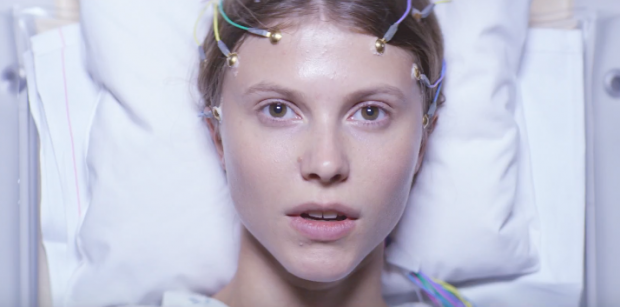Witchcraft is not merely a concept that began in Salem in the late 17th century. The first mention of it comes in the Old Testament, Indeed, the church played a pivotal role in bringing it into popular culture. The term ‘witch’ being used as a way of disparaging those women who don’t conform or who are ‘different’. It has been connected more recently with hysteria or seizures, traditionally labelled as demonic or supernatural possession. In modern parlance, the description would probably be epilepsy. Thelma is a coming-of-age story with a difference, which combines ancient ideals and the modern world.
After being brought up in the country by her devoutly Christian mother (Ellen Dorrit Petersen) and father (Henrik Rafaelsen), Thelma (Eili Harboe) moves away from her family for the first time to study. Cosseted from modern society, she struggles to fit in or make friends. That’s until she meets the popular Anja (Kaya Wilkins). The pair are drawn together and Thelma begins to experience feelings she’s never felt before. These trigger a wave of regret and remorse. Not to mention some interesting side-effects.
Thelma riffs off Carrie, combining coming-of-age drama, supernatural horror and religious fanaticism to brilliant effect. Director Joachim Trier returns to form after the rather unfocused Louder Than Bombs. Eli Harboe produces a marvellously understated performance in what is an elegantly shot, sumptuously soundtracked and beautifully acted film. Thelma is a force of nature. A treatise against religious fanaticism and fantasy of lust, love and family.
Thelma is out in cinemas from Friday 3 November.














No Comment